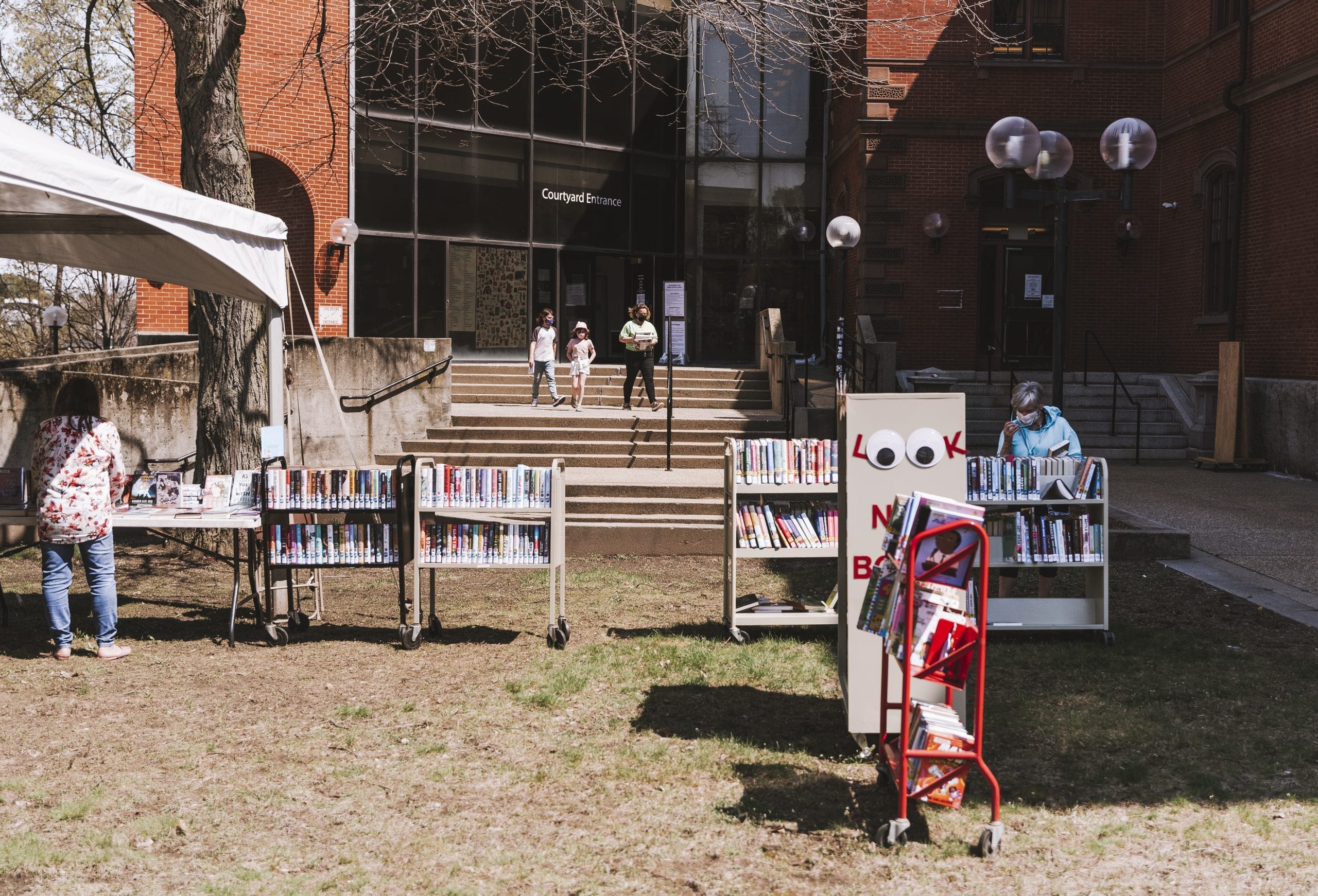Over the last two decades, the explosion of digital media and e-books — coupled with massive budget cuts — have had many fearing for the future of public libraries.
But the COVID-19 pandemic has changed things.
Peabody Institute Library Director Cate Merlin understands all too well the evolving role libraries have taken on during the global public health crisis.
Since last year, Merlin and her team have launched a host of new programs and services at the city’s three library branches, all of which are intended to help fill community needs during an unprecedented time.
In early 2020, the Peabody Institute’s main branch launched its “Library of Things”: a collection of items patrons can check out, use, and return within a given time frame. The assortment includes tool kits, board games, fishing rods, craft kits, and a number of other useful household items.
“We tried to have a combination of fun things and useful things and things that people might not be able to purchase on their own because it’s not worth purchasing for one-time use, or they just don’t have the available funds to do it,” Merlin said.
Perhaps most importantly for families struggling through virtual learning during the pandemic, the Peabody Institute Library also offers free WiFi hotspots that can be borrowed in two-week intervals. For some low-income households, such services can be a lifeline.
“Every library has been doing its best to figure out exactly what their patrons need from them and how they can provide it,” Merlin said. “That’s what we do.”
Since early last summer, Saugus Public Library Director Alan Thibeault said his library, like Peabody’s, has also offered residents a number of different borrowing options.
Patrons are able to request materials online, by email, or by phone, and front door pickup allows those who need printer services (for job applications or other reasons) to print what they need remotely and for free.
The library has also seen success with its virtual programming, which offers story hours, musical performances, how-to classes, author talks, and cooking classes.
“Some people have expressed frustration that we can’t do more for them, and I get that. I really wish we could just throw the doors open and welcome everyone back inside their library without restrictions. I think everyone longs for that,” Thibeault said. However: “A lot of our patrons have expressed their gratitude for the services we’ve been able to provide during the pandemic. It’s gratifying to know that we can still make a difference, even during these very strange times.”
In Nahant, Library Director Sharon Hawkes discovered that virtual book readings can be a good way to foster a sense of community during a time when “community” has taken on an entirely new meaning. In February, she hosted a reading of Arthur Miller’s “Death of a Salesman” over Zoom.
“I like to do group reads so we can read something that’s not about us in order to talk about us,” Hawkes said. “Obviously the whole country has been going through difficult times between the pandemic, the Black Lives Matter movement, and the polarity in our political system.
“A lot of people are very vocal and emotional about what’s going on, and I wanted to see if we could look a little closer and discuss as a community as to why that is.”
Although the library has hosted in-person group readings since 2016 under the name Nahant Reads Together, February’s was one of the first readings to be held virtually during the pandemic.
Paul Mador was one of about a dozen residents to participate. After an isolating year, he said the opportunity to interact — even virtually — with other members of his community was a welcome change.
“I find it very comforting to be able to have access to a library,” Mador said. “It’s really important. I know a lot of people are not members of a library and don’t use the system, but (libraries) can help ground people. I know it’s helped me stay grounded, to try to get more into reality and try to find something good.”
When it comes to the future of America’s public libraries, Merlin is hopeful the pandemic proves the vital role these community centers play in day-to-day life.
As libraries continue to evolve and take on new meaning in their communities, Merlin said she anticipates more educational and technological programming options will become readily available at libraries across the country in years to come.
“I think we’ll continue to cater our services to our communities, and every community is different,” Merlin said. “We’ll continue to do what our patrons ask of us and see where the trends in technology and library services go.”
Elyse Carmosino can be reached at [email protected].

